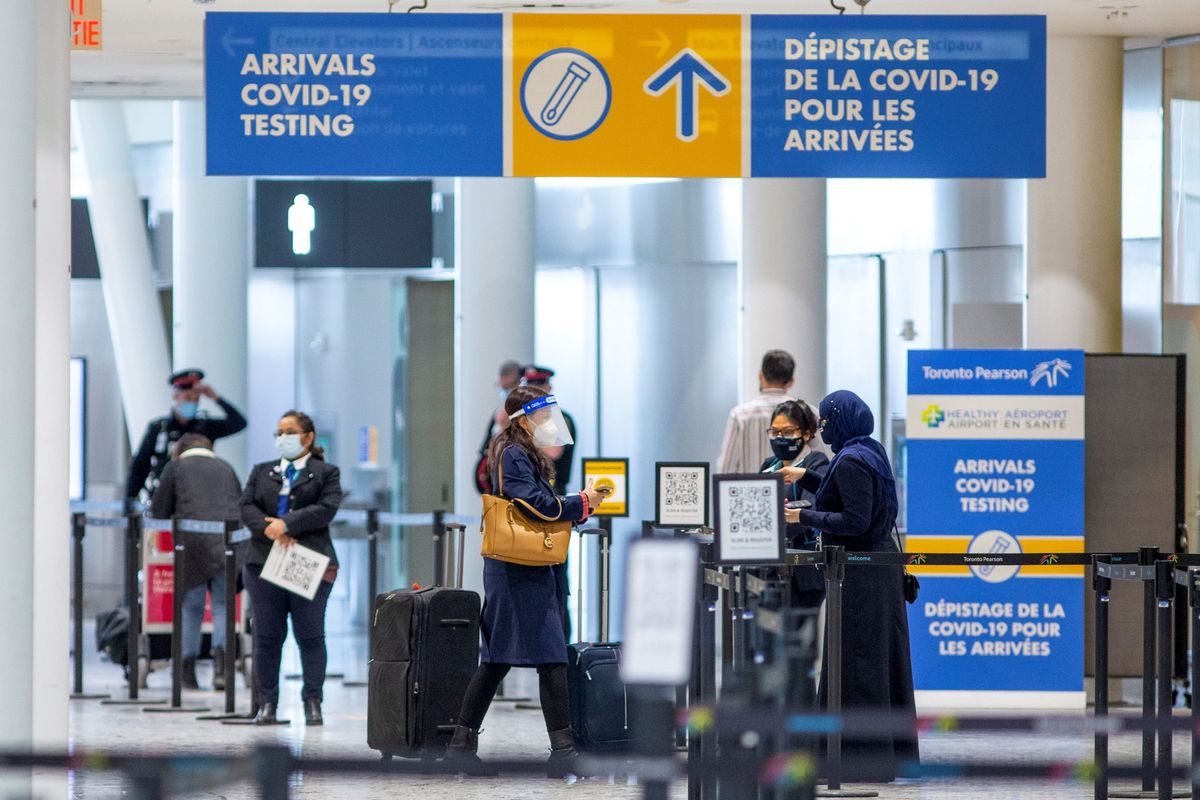With travel increasing alongside COVID-19 cases, should US airlines brace for a second hit?

A few minutes every morning is all you need.
Stay up to date on the world's Headlines and Human Stories. It's fun, it's factual, it's fluff-free.
On July 18, the TSA screened more than 2.2 million travelers, the highest number since the start of the pandemic.
What happened to the airline industry?
- The airline industry was one of the hardest hit by the COVID-19 pandemic. Travel bans, lockdowns and fear of contracting the virus meant that few people wanted to or were able to travel.
- On top of that, the economic recession meant that even fewer people had the finances to travel even if they wanted to.
- According to Transportation Security Administration (TSA) data, the number of passengers who flew on April 14 of 2020, during the peak of the travel suspension, was only four percent of what it had been on the same day in 2019.
- So with that, two-thirds of passenger planes got put into storage, and in 2020 the airline industry as a whole brought in nearly US$550 billion less than it had originally forecasted.
What about the government grants?
- So, there were billions of dollars in government grants and most of that wasn’t necessarily designed to keep airlines afloat, but rather to keep the people in the industry employed and paid.
- Government bailouts for the American airline industry had helped things a bit – airlines got more than US$50 billion in grants to keep people employed, along with another US$25 billion in loans.
- The story was similar in other parts of the world. In Europe, airlines were given more than 30 billion euros in bailouts and Singapore Airlines in Asia got US$13 billion.
Is the industry doing better now?
- Airlines certainly seem to be doing better.
- On July 18, TSA screened more than 2.2 million travelers, the highest number since the start of the pandemic.
- And, consumer spending on airlines exceeded 2019 levels every week for the first time since the start of the pandemic, with ticket prices only down 1% compared to the same month in 2019.
- But, there are still two types of travel where airlines are seeing lag behind the rest; business and international travel and both types of travel will be essential for this to be considered a full recovery.
- International travel faces issues like varying vaccination, testing and quarantine requirements, along with all-out travel bans or requirements for travel to be allowed.
- But, business travel brings up some more specific questions, specifically whether or not companies will be willing to send people via plane as often now with new widespread usage of video conference platforms.
Are traveler shortages in those areas the only problem airlines are facing?
- There are a few other problems airlines are running into.
- First and foremost, airlines are facing a shortage of pilots and flight attendants. Airlines gave some employees who volunteered extended leave their time off during the pandemic but now, they’re calling this group back to work.
- But, around 1,000 pilots won’t be coming back after taking advantage of programs offered by companies like American Airlines that let them retire early.
- The other problem airlines are facing is massive delays, caused in part by the quick ramp-up in travel this summer.
- Even though passenger volumes still down nearly 20% from pre-pandemic levels, some airlines are seeing as many as 40% of flights being delayed for at least 15 minutes.
- Both of these problems are issues airlines have to deal with, but they’re also a sign of a successful rebound. Too many customers isn’t often something employers complain about.
What about the delta variant?
- So far, airline executives say that the delta variant of COVID-19 hasn’t slowed down ticket sales. “We haven’t seen any impact at all on bookings, which continue to just get stronger and stronger every week,” said Scott Kirby, chief executive officer of United Airlines.
- Airlines are saying that a high percentage of their best customers are fully vaccinated, which could be the reason ticket sales are largely unaffected.
- According to United Airlines, 84% of the members of its frequent flyer program are fully vaccinated.
- And, airlines are now even lobbying for the Biden administration to lift restrictions that prevent people from other countries entering the US.
- As of now, the restrictions stay in place, but officials say that airlines are working closely with the government in a two-way conversation.
What’s next?
- The hope for airlines is that amid a labor shortage, they’ll be able to fill some of the shortages they have among employees.
- But, as far as things like business and international travel go, airlines are optimistic they’ll return in full swing.
- For the delta variant, right now, it doesn’t yet seem likely airlines will be shutting down anytime soon due to outbreaks, with recovery going full-steam ahead.
Have a tip or story? Get in touch with our reporters at tips@themilsource.com




Comments ()